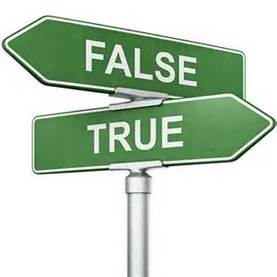
www.PrivateCounselingGA.com
Have you ever caught yourself saying hurtful things… to yourself? Sometimes we reprimand ourselves for a small error. For example, after being pulled over for speeding in the car, I might say, sarcastically “Good job, Bree. Now you have to pay a fine.” However, sometimes the things we say to ourselves are more deeply rooted. For example, with the same scenario above, I could also say to myself “I am so stupid. I never do anything right.” A false belief is a fear of the emotional pain that results from believing something negative about our self.
The lack of core/basic needs are the root causes of the false belief statements. When you doubt your ability to have or receive core needs or desires (love, belonging, success, or self-worth), you begin to use negative statements to talk to yourself. Ultimately, these statements become truth to you. Here are some examples of False Belief statements based on Core Needs:
Love I’m not lovable I am plain and dull I am not special I don’t matter I am unworthy I am not liked I am not appreciated I am unneeded | Belonging I am judged by everyone I’m different I am unwanted I am alone I am unwelcome I don’t fit in anywhere I don’t belong | Success I’m not good enough I am unsuccessful I’m not valuable I am inferior I am nothing I am worthless I am invisible I am insignificant I’m stupid | Self-Worth I don’t deserve good things I’m worthless I’m bad I am unattractive I am flawed I am stupid I am awkward I am slow I can’t be me |

Where is the truth in this chain of thoughts?
Truth: I failed ONE test.
Assumptions/False Beliefs: I am stupid.

1) Look for evidence to support or refute your Belief – Ask yourself:
Did I study for the test?
Have I passed tests in the past?
What things have I done that prove I am smart?
What things have I done that show I am unintelligent?
Is one test proof of all of my abilities?
What does this evidence tell me about my False Beliefs?
2) Change your perspective:
What are other ways to look at this situation?
Brainstorm other causes of the failed test: not studying, absent from school too much, daydreaming, didn’t ask for clarification on the content, tired, in bad mood, felt rushed, the list goes on …
Take action – plan for improvement in the future (instead of acceptance of this as your “fate”) – What can I do differently next time?
3) Address your emotions:
What are you feeling? Be specific.
What thoughts are causing you to feel this way (false beliefs)?
How would you like to feel?
Are you reacting based on your feelings and false beliefs? Or are you reacting based on facts and truth?
4) Utilize CBT (Cognitive-Behavioral Therapy) thought reframing:
Thoughts à Feelings à Actions
If you believe negative thoughts à you have negative feelings à you make poor choices
If you believe positive/productive thoughts à you have positive feelings à you make wise choices
 RSS Feed
RSS Feed